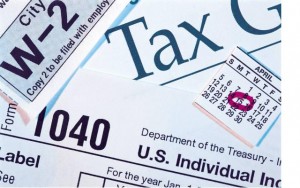 TAX DEDUCTIONS FOR Outer Banks Housing LANDLORDS
TAX DEDUCTIONS FOR Outer Banks Housing LANDLORDS
Every year, Landlords pay more taxes on their rental income than they should. Why? Because they fail to take advantage of all the tax deductions that are available for Landlords who rent their homes on a long-term basis. Having a Rental property provides more tax benefits than almost any other type of investment.
Many times, these benefits make the difference between earning a profit and losing money on your Outer Banks long term rental property. Here is a list of the top 10 tax deductions for Landlords of residential rental homes:
Interest:
Interest paid is often a Landlord’s single biggest deductible expense. Common examples of interest that Landlords can deduct include mortgage interest payments on loans used to acquire or improve a rental property.
Depreciation:
The actual cost of a Residential long-term rental home is not fully deductible in the year in which you pay for it. Instead, Landlords get back the cost of real estate through depreciation. This involves deducting a portion of the cost of the property over several years.
Repairs:
The cost of repairs to your Outer Banks Residential rental property (provided the repairs are ordinary, necessary, and reasonable in amount) is fully deductible in the year in which they are incurred. Good examples of deductible repairs include repainting, fixing floors, fixing leaks, drywall repairs and replacing broken windows.
Local Travel:
Landlords are entitled to a tax deduction for most of the driving they do for their Rental property activity. For example, if you come in town to perform a repair or meet with OBX Housing at your Outer Banks long term rental property to deal with a Tenant issue or inspection or even go to Ace Hardware to purchase a part for a repair, you can deduct your travel expenses. However, you can’t deduct the cost of travel you do to improve your Outer Banks rental property– these expenses must be added to its tax basis and depreciated over many years.
Long Distance Travel:
If you travel overnight while in the course of performing an activity at your Outer Banks long term rental home, you can deduct your airfare, hotel bills, meals, and other expenses. If you plan your trip carefully, you can even mix landlord business with pleasure and still take a deduction.
However, IRS auditors closely scrutinize deductions for overnight travel and many Landlords get caught claiming these deductions without proper records to back them up. To stay within the law (and avoid unwanted attention from the IRS), you need to properly document your long distance travel expenses and OBX Housing can help you with this by creating a documented Inspection report that can be shared with your Owner Portal for future reference.
Casualty and Theft Losses:
If your Outer Banks rental property is damaged or destroyed from a sudden event like a fire or flood, you may be able to obtain a tax deduction for all or part of your loss. These types of losses are called casualty losses. You usually won’t be able to deduct the entire cost of property damaged or destroyed by a casualty. How much you may deduct depends on how much of your property was destroyed and whether the loss was covered by insurance.
Insurance:
You can deduct the premiums you pay for almost any insurance for your Outer Banks rental home. This includes fire, theft, and flood insurance for rental property, as well as landlord liability insurance.
Legal and Professional Services:
Because you have hired OBX Housing to perform property management services for your Outer Banks rental property, you can deduct our commission as a rental business expense. You can also deduct fees that you pay to attorneys, accountants, real estate investment advisors and other professionals. You can deduct these fees as operating expenses as long as the fees are paid for work related to your Outer Banks rental property.
